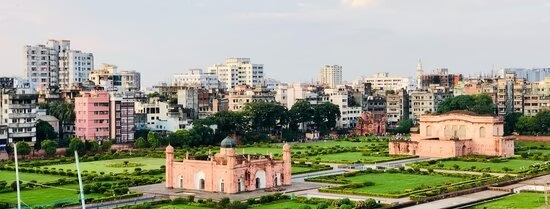Climate change-induced displacement affecting female migrants’ access to livelihoods in Asian cities: Improving food and water security in urban upgrading and resettlement
| Eligible countries | Bangladesh, India, Indonesia, Myanmar, Nepal, Pakistan, and Vietnam |
| Dates | April 3-14, 2022 |
| Course modality | This course will take place in person. |
| Application deadline | March 3, 2022 |
| Expected selection outcome | March 7, 2022 |
| Local partners | Khulna University, Architecture Discipline, Khulna Bangladesh |
| Course Coordinator(s) | Maartje van Eerd |
This course is organised with the support of the Dutch Ministry of Foreign Affairs and Nuffic.
Should I join the course?
This course is intended for Orange Knowledge Programme (OKP)/Netherlands Fellowship Programme (NFP) alumni from Bangladesh, India, Indonesia, Myanmar, Nepal, Pakistan, and Vietnam. Alumni can invite colleagues if well motivated and to a limited extent. This course is aimed at alumni whose current practice is related to the theme of the course. Female participation is strongly encouraged. The participants will be chosen based on their relevant professional backgrounds, strong motivation and high potential of the prolonged development impact of the training.
What will I learn?
By the end of this course, you should be able to:
- Understand key theories and debates on livelihoods-housing nexus focusing on food and water security in fast-urbanising Asian cities.
- Comprehend how climate change affects female migrants regarding their food and water security in relationship to their access to adequate housing.
- Learn from first-hand experiences on the theme of climate change in vulnerable cities in Asia.
- Critically reflect upon how upgrading and resettlement can provide poor female tenants/owners and their families opportunities to access adequate housing and improved livelihoods (through food and water security).
- Create an inclusive, gender-sensitive and integrated housing-livelihood-food and water-secure upgrading/resettlement action plan for climate-vulnerable cities.
Course content
This course will be divided into two components:
Component 1: theory
Component 1 consists of three modules, each spread over two-three morning sessions and will be delivered by IHS (the international perspective), lecturers from Khulna University (IHS alumni and their colleagues providing the local perspective) and identified local guest lecturers who are key experts in their field.
- Module 1: Presents key theories and debates on livelihoods-housing nexus focusing on food and water security internationally, with case-studies from fast-urbanising Asian cities.
- Module 2: Will focus on climate change-induced migration to slums and how that is affecting female tenants'/owners' food/water security in urban (informal/resettlement) housing situations. With case studies from climate-vulnerable Asian cities, particularly from Bangladesh.
- Module 3: Upgrading and resettlement, and how that can provide poor female tenant/owners and their families with opportunities to access adequate housing and improved livelihoods through food and water security.
Component 2: linking theory to practice
Component 2 consists of two parts that will link the learned theory to practice.
- Module 1: Field visits, which will further enhance the understanding of the concrete impact of how climate change is affecting female tenants'/owners' food/water security in urban (informal/resettlement) and possible interventions.
- Module 2: Developing a site-specific gender-sensitive and integrated housing-livelihood-food and water-secure upgrading/resettlement action plan for climate-vulnerable cities.
Input is delivered through lectures and case studies in the morning and exercises in the afternoon.
Image by Tanvir Islam on Unsplash
